7. Next Stop Paradise (1998)
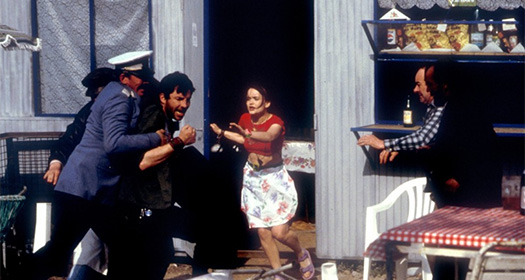
Among the many works Lucian Pintilie did this is definitely in top three. Rarely such a complex film has been seen in the Romanian cinema. We have two characters, Norica (Dorina Chiriac) and Mitu (Costel Caşcaval), who have a special bond that may even lead to marriage, but soon their love becomes impossible.
Norica wants to marry her boss Gili, a more mature and wealthy man, and if that wasn’t enough, Mitu must join the army for two years. Yet he never forgets about her, and his feelings are so enormous that they turn into a dangerous obsession for Norica that will get Mitu into serious problems.
Drama, romance, comedy, and action, this film has them all. With extensive care, Pintilie crafts a story that will grab your full attention until the very end. He is one of the few directors, if not the only one, who isn’t completely interested in showing what is wrong in Romania.
Of course, that constant analysis of why the system is not working as it should, of the general indifference of the people, is present here. Yet the director knows how to make the film about something more. His characters are complex and deeply human, his action is well packed, his dialogues are excellently written, and with these tools, Pintilie makes art.
6. Hello! How Are You? (2010)
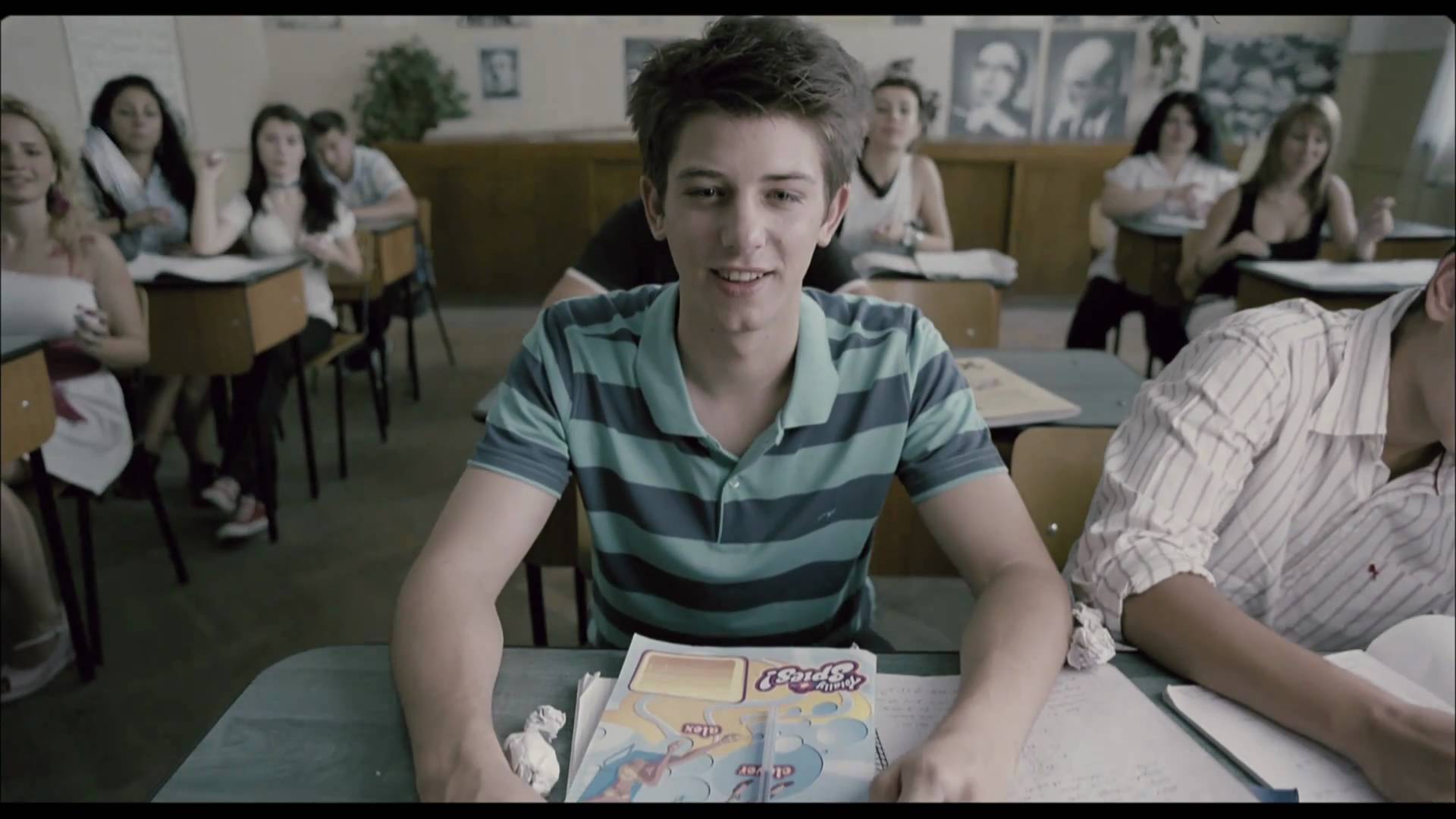
Gabriel (Ionel Mihailescu) and Gabriela (Dana Voicu) have been married for 20 years, and sadly, the time has killed the passion as time always does. They live together, but feel more distant with each passing day.
The attraction is gone, the thrill disappeared long ago, and they feel old and tired of each other. However, a sudden change happens when both Gabriela and Gabriel start using an online chat room. They both fall in love, only to discover in the very end that they were talking with each other the whole time.
Alexandru Maftei’s film might be the most underrated picture from this list. It didn’t get much international attention, even in Romania, as the public and the critics didn’t like it that much, which is a shame.
In a time when the Romanian New Wave was the main trend, “Hello! How Are You?” was an extremely bold film whose unexpected beauty surpassed almost all the pretentious films from the New Wave. Maftei’s film’s simplicity and visual aesthetics evoke a quiet and charming tenderness.
The heartbreaking way his two characters discover that love is still there is just deeply hidden under the boredom and stiffness of marriage. This film is a rare example of Romanian cinema breaking its own limits; it can be modern and daring, visually striking, and yet profound and wise.
5. The Rest is Silence (2007)
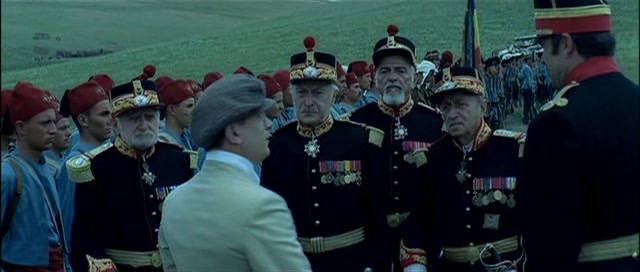
The one and only Nae Caranfil takes a well-deserved place on this list with one of his best films, The Rest is Silence. Again we have a director with style, quite unlike anything in the Romanian cinema history.
This film is a story about another film. More exactly, almost 100 years ago, Grigore Brezianu (Marius Florea Vizante), a wannabe director helped by Leon (Ovidiu Niculescu), wanted to make a film called “Romania’s Independence”.
This film was supposed to be a faithful screen adaptation of the Independence War fought in 1877. “The Rest is Silence” tells that story in an often humorous and bittersweet way, combining real facts with a little bit of fantasy.
This film is the undeniable proof that Caranfil is in a league of his own. “The Rest is Silence”, without exaggeration, is one of the few masterpieces of Romanian cinema. Its humor mixed with nostalgia and sadness makes words and actions that were supposed to happen 100 years ago feel current.
This picture is filled with a childish naivety that felt like a breath of fresh air for Romanian filmgoers. “The Rest is Silence” changed the game back in 2007; it was and is to this day a very ambitious film that never got the full recognition it rightly deserved.
4. Marilena from P7 (2006)
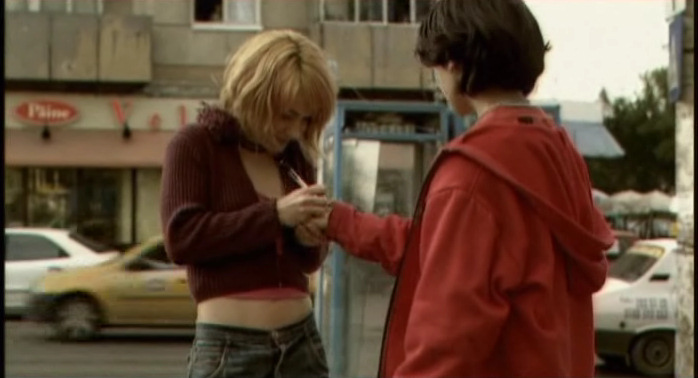
The deeply-missed Cristian Nemescu, who died in 2006, sadly didn’t leave us many films and if you see the ones he did, you will understand what kind of loss is his death for the Romanian Cinema.
“Marilena from P7” is a medium-length film of only 48 minutes about Andrei (Gabriel Huian), a 13-year-old child who falls in love with Marilena (Madalina Ghitescu), a prostitute from the neighborhood. Blinded by her charms, the teenager will do anything, even the stupidest things, to win her heart.
From this too-short film, any film lover could tell that Nemescu’s talent as a director was undisputed. In praise of its realism, almost everyone tends to forget that this is not the usual Romanian realism. Nemescu’s view is more fascinating than that.
Yes, we have the swearing, the misery people are living in, the bad part of the city, the poor people, but does all of that really matter? Or is the story of a young boy falling for a prostitute the core of this film?
Nemescu creates these kinds of puzzling questions by introducing some unusual details for a realist film. It might be this impossible love, it might be the stealing of a bus or the crying of a prostitute that provokes a cutoff of electric power in the whole town, and it’s this uncertainty where the magic dwells.
3. Reconstruction (1968)
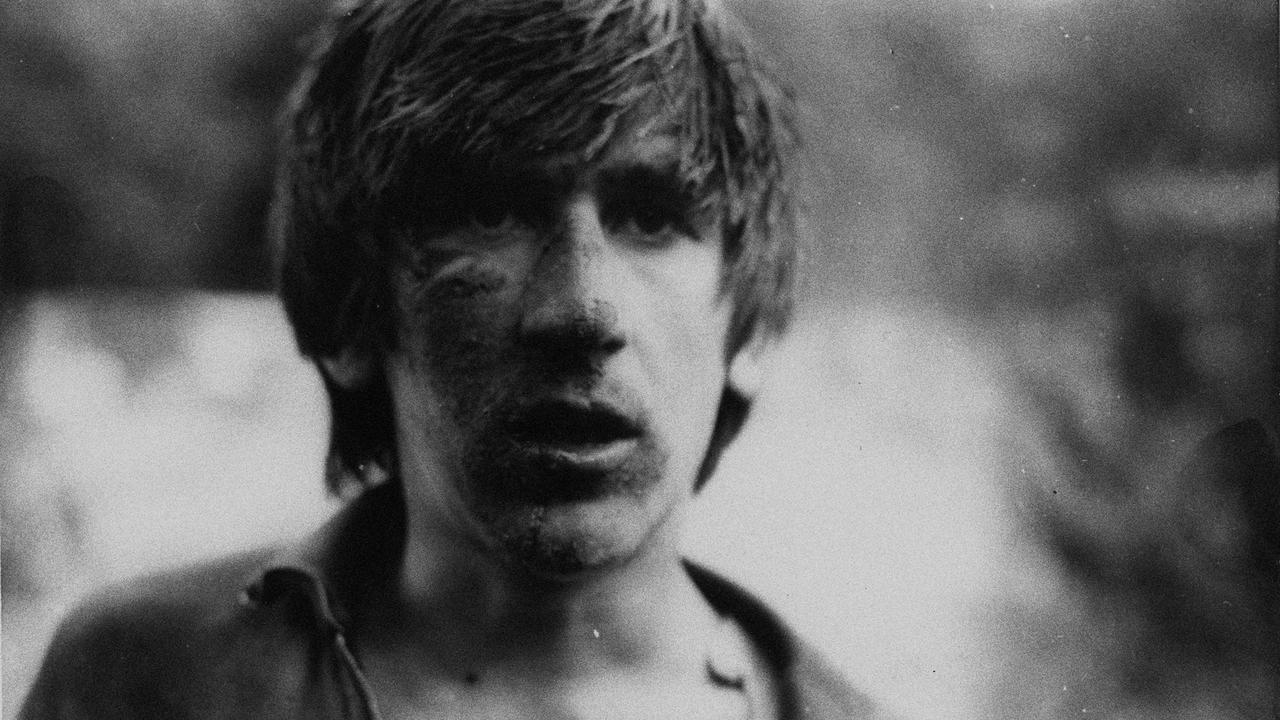
Considered by Romanian film critics as the best Romanian film of all time, it’s no surprise that this title made it onto this list. Yet is it really that good? Pintilie’s “Reconstruction” has a surprisingly simple and very effective story. Two students, Vuica (George Mihaita) and Nicu (Vladimir Gaitan), are brought to a restaurant by a prosecutor, teacher, and policemen.
It is the same restaurant where they got drunk and had a fight awhile ago. So the prosecutor has them re-enact their altercation, which this time will be filmed for everyone to see the dangerous effects of alcohol. Ironically, their good intentions take a turn for the worst.
This film is quite a strange picture from Pintilie. Misuse of power, indifference, and even incompetence are the things Pintilie points out with such clarity. Visually stunning and very well acted, “Reconstruction” is the kind of film that subtly captures your attention.
In almost no time, you will find yourself in a complete state of awe and confused anger. What the director did here is one of the best analyses of the irrationality of power, which is also a direct critique of the communist regime of that time, so it’s no surprise that this great film was banned for many years.
2. The Oak (1992)
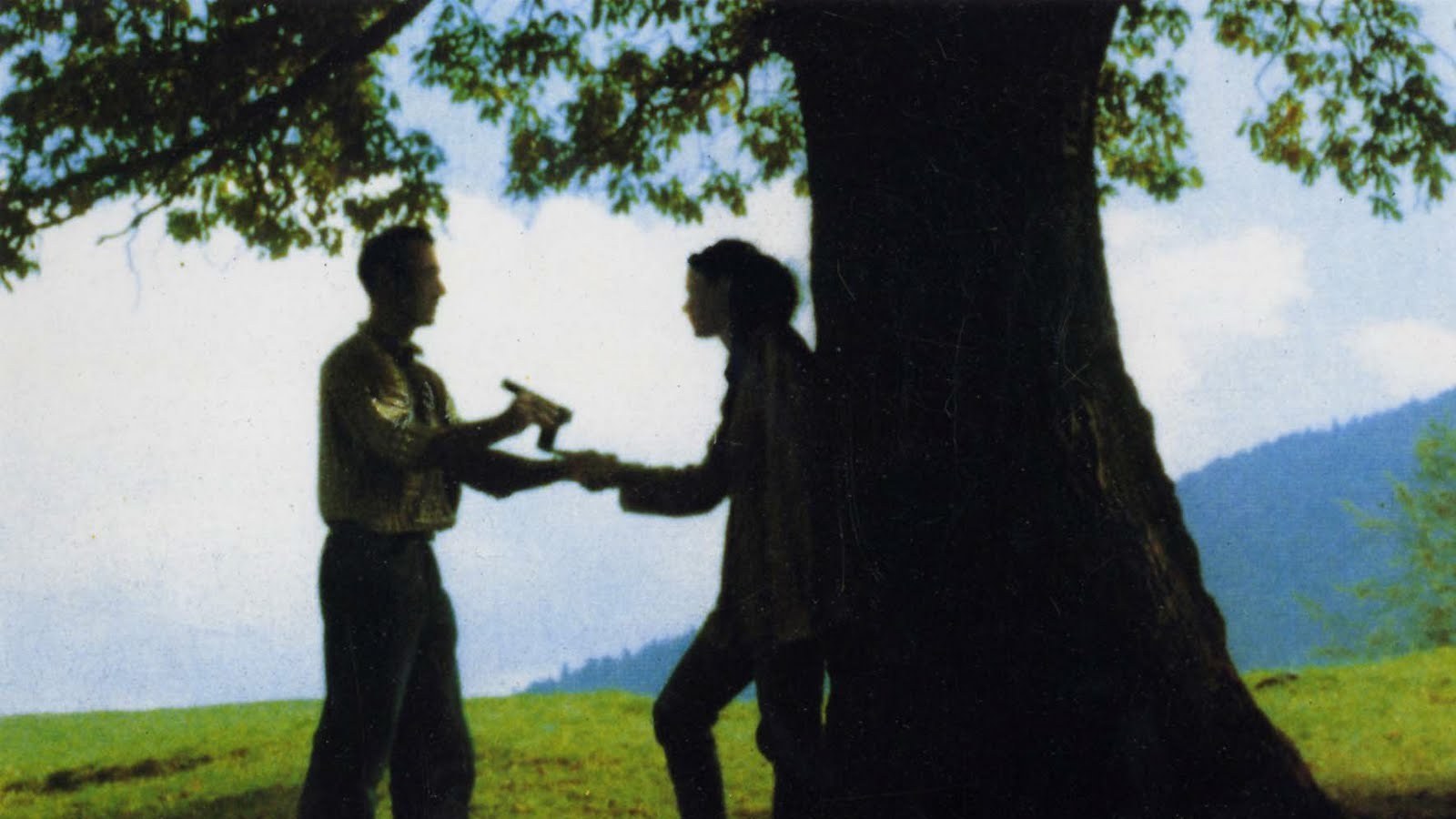
Here we have the last film from Pintile, which is another story happening before the downfall of the communist regime. Yet because it is Pintilie, it is safe to say that it is not quite the usual Romanian film about Ceausescu’s downfall and society in that years.
No, “The Oak” is the story of Nela (Maia Morgenstern), a schoolteacher and the daughter of a former colonel of the Romanian political police (Securitate). After he dies, her job makes her go into a small town to teach at the school there, and she meets Mitica (Răzvan Vasilescu), who seems to have the same mentality as her.
The main difference between Pintilie and the other directors who depicted the same subject is mainly the characters from the story. Pintilie knows how to create vivid and complex characters. Here, we have two intellectuals, two very smart people caught in the absurdity of the communist regime.
In this dark world, the way these characters keep their verticality and honesty is fascinating. Often with the help of crude humor, they speak the truth and they prove they have a backbone. That’s why this film feels very real and natural at some times, two traits, among many others, that will attract any lover of fine art cinema.
1. Philanthropy (2002)
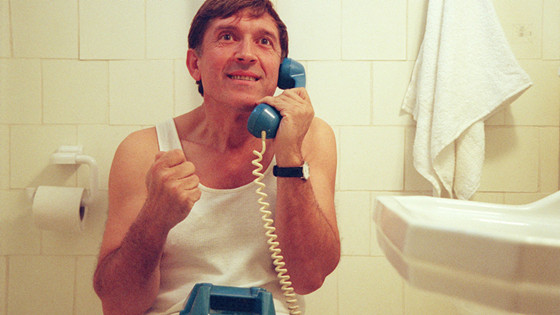
With this film, Nae Caranfil reached the climax of Romanian cinematography in the 2000s. It is his masterpiece and definitely one of the best Romanian films ever made. Here we have Ovidiu (Mircea Diaconu), a high school teacher who falls in love with Diana (Viorica Voda).
The problem is that she is young, very attractive, and wants money. He, on the other hand, is none of that. So to compensate for his shortcomings, he starts searching for another way to make more money.
That’s how Ovidiu meets the enigmatic and charismatic Pepe (Gheorghe Dinică), who has a very strange business involving the beggars from Bucharest. Tempted by the money, Ovidiu accepts the deal Pepe proposes and becomes a major piece of his plans. But the easy gains are not without a risk, as soon Ovidiu will find out.
This film is definitive proof that Caranfil is not just a good director, but a very talented storyteller as well. As he said, “Philanthropy” is like a “modern fairytale”. And indeed it is. Again, we see Caranfil’s style; it is a very serious story and a sad one, yet it’s presented in an incredibly funny way. But this film is far from being a brainless comedy.
In fact, it is very smart and original, and a real achievement in scriptwriting for Romanian cinema. Also helped by its very charismatic actors and many, many memorable lines, “Philanthropy” is the kind of film that never gets boring. You can see it again, and again, and again, every time with the same pleasure as the first time.
Author Bio: Andrei is a Psychology student who fell in love with cinema 13 years ago. Since then he has been a voracious consumer of films and TV series. He’s also an avid reader and writer who likes to share with the world every small and interesting thing he sees .